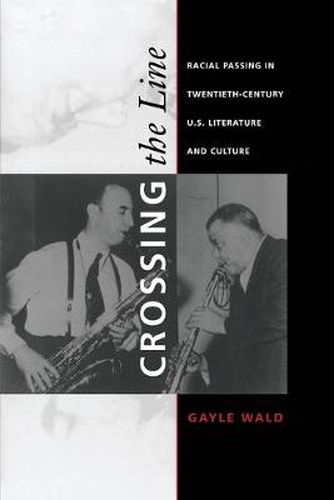Readings Newsletter
Become a Readings Member to make your shopping experience even easier.
Sign in or sign up for free!
You’re not far away from qualifying for FREE standard shipping within Australia
You’ve qualified for FREE standard shipping within Australia
The cart is loading…






An analysis of narratives of racial passing, offering a strategy for engaging such narratives. To erode race’s authority, Gayle Wald argues, we must understand how race defines and yet fails to represent identity. She thus uses cultural narratives of passing to illuminate both the contradictions of race and the deployment of such contradictions for a variety of needs, interests and desires. Wald begins her reading of 20th-century passing narratives by analyzing works by African-American writers James Weldon Johnson, Jessie Fauset and Nella Larsen, showing how they use the passing plot to explore the negotiation of identity, agency and freedom within the context of their protagonists’ restricted choices. She then examines the 1946 autobiography, Really The Blues , and the 1949 films Pinky and Lost Boundaries . Finally, after a look at liberal contradictions of John Howard Griffin’s 1961 auto-ethnography Black Like Me , Wald concludes with an epilogue that considers the idea of passing in the context of the discourse of colour blindness .
$9.00 standard shipping within Australia
FREE standard shipping within Australia for orders over $100.00
Express & International shipping calculated at checkout
An analysis of narratives of racial passing, offering a strategy for engaging such narratives. To erode race’s authority, Gayle Wald argues, we must understand how race defines and yet fails to represent identity. She thus uses cultural narratives of passing to illuminate both the contradictions of race and the deployment of such contradictions for a variety of needs, interests and desires. Wald begins her reading of 20th-century passing narratives by analyzing works by African-American writers James Weldon Johnson, Jessie Fauset and Nella Larsen, showing how they use the passing plot to explore the negotiation of identity, agency and freedom within the context of their protagonists’ restricted choices. She then examines the 1946 autobiography, Really The Blues , and the 1949 films Pinky and Lost Boundaries . Finally, after a look at liberal contradictions of John Howard Griffin’s 1961 auto-ethnography Black Like Me , Wald concludes with an epilogue that considers the idea of passing in the context of the discourse of colour blindness .